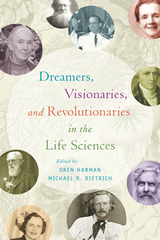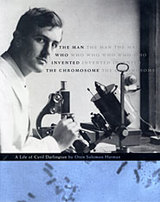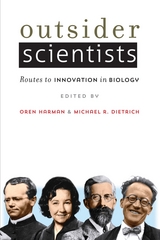
From the Frenchman Jean-Baptiste Lamarck, who coined the word “biology” in the early nineteenth century, to the American James Lovelock, for whom the Earth is a living, breathing organism, these dreamers innovated in ways that forced their contemporaries to reexamine comfortable truths. With this collection readers will follow Jane Goodall into the hidden world of apes in African jungles and Francis Crick as he attacks the problem of consciousness. Join Mary Lasker on her campaign to conquer cancer and follow geneticist George Church as he dreams of bringing back woolly mammoths and Neanderthals. In these lives and the many others featured in these pages, we discover visions that were sometimes fantastical, quixotic, and even threatening and destabilizing, but always a challenge to the status quo.

Born by mistake, or connivance, to struggling parents in a small Lancashire cotton town in 1903, an uninspired Darlington inadvertently escaped the obscurity of farming life and rose instead, against all odds, to become within a few short years the world's greatest expert on chromosomes, and one of the most penetrating biological thinkers of the twentieth century. Harman follows Darlington's path from bleak prospects to world fame, showing how, within the most miniscule of worlds, he sought answers to the biggest questions--how species originate, how variation occurs, how Nature, both blind and foreboding, random and insightful, makes her way from deep past to unknown future. But Darlington did not stop there: Chromosomes held within their tiny confines untold, dark truths about man and his culture. This passionate conviction led the once famed Darlington down a path of rebuke, isolation, and finally obscurity.
As The Man Who Invented the Chromosome unfolds Darlington's forgotten tale--the Nazi atrocities, the Cold War, the crackpot Lysenko, the molecular revolution, eugenics, Civil Rights, the welfare state, the changing views of man's place in nature, biological determinism--all were interconnected. Just as Darlington's work provoked him to ask questions about the link between biology and culture, his life raises fundamental questions about the link between science and society.

READERS
Browse our collection.
PUBLISHERS
See BiblioVault's publisher services.
STUDENT SERVICES
Files for college accessibility offices.
UChicago Accessibility Resources
home | accessibility | search | about | contact us
BiblioVault ® 2001 - 2024
The University of Chicago Press









